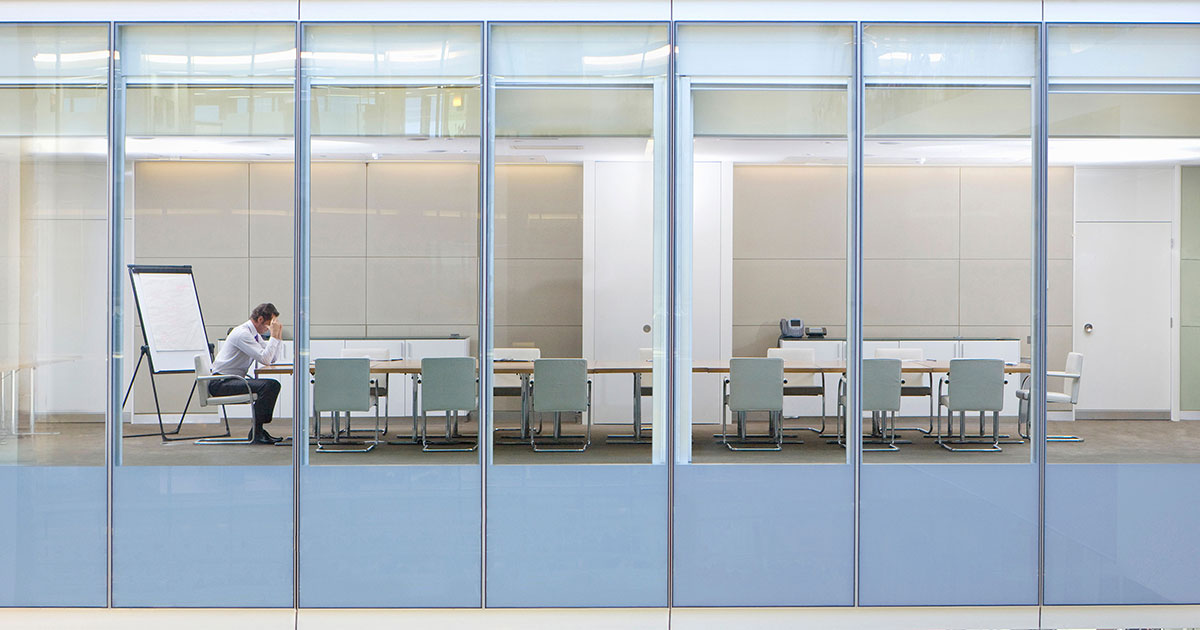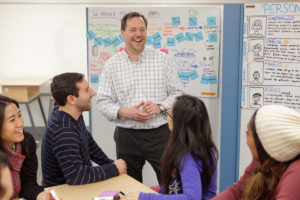Investigating the Future of Work

What the future of work looks like—and what that means for the office and where employees ultimately spend their days—remains a murky question, one that companies continue struggling with in the wake of the pandemic.
No clear path forward has yet to emerge. On the one hand is Airbnb, which announced in the spring that employees will remain fully remote permanently. “The office as we know it is over,” Brian Chesky, Airbnb’s CEO, told Time magazine.
Then there’s Tesla and its CEO, Elon Musk, who has taken a hard line against employees working anywhere but the office. In a leaked email, Musk wrote to executive staff, “Anyone who wishes to do remote work must be in the office for a minimum (and I mean *minimum*) of 40 hours per week or depart Tesla.”
Between the two of them, Airbnb and Tesla represent the two opposing approaches that companies can take toward their employees. “These are the two extremes,” says Sebastian Fixson, the Marla M. Capozzi Term Chair in Design Thinking, Innovation, and Entrepreneurship at Babson College. “Every organization is somewhere in the middle and trying to figure this out.”
Much is at stake for companies. The pandemic has altered, perhaps irrevocably, what our professional lives look like. “A lot of what we took for granted is up for grabs,” Fixson says.
That means businesses are reckoning with core questions about productivity, innovation, and company culture. Do they want to be an organization with a strong community that mandates employees (perhaps against their wishes) to be in the office a significant amount of time, or do they want to allow their employees a great deal of flexibility and freedom away from the workplace, even if that potentially erodes company cohesion and culture?
“Every organization has to ask itself, how do we work? Who do we want to be?” says Fixson, also the associate dean of graduate programs and innovation. “It is disingenuous to say there is a simple answer. It is a hard problem.”
Freedom and Flexibility
Fixson has spent a lot of time thinking about the future of work, and he says the shift to the remote office comes as companies are already facing challenges and opportunities brought on by new technologies. In MIT Sloan Management Review, Fixson co-wrote an article that examined the core skills employees will need in a workplace where artificial intelligence, robotics, quantum computing, and a host of other emerging technologies are playing an increasing role.

“Even before the pandemic, the office was undergoing a transformation,” Fixson says. “The promising elements of remote work environments, and a shift toward more innovative work cultures, are all bringing about an evolution of work. It’s a lot for organizations to consider.”
Looking specifically at remote work, Fixson says that it offers many positives for both employees and employers. For instance, there’s the flexibility it provides workers, an invaluable benefit for those who, say, have childcare needs or face long commutes. Remote work also allows companies to expand their recruiting pool, effectively enabling them to hire candidates from anywhere.
Not that remote work pleases everyone. How employees feel about it varies, Fixson says, and one shouldn’t make assumptions based on age. Yes, many young workers enjoy the increased flexibility and are thriving online, but many aren’t, citing feelings of isolation and loss of work-life separation. The same mix of feelings can be found in older workers as well.
Instant messaging tools such as Slack can help workers at home feel more connected, assuming they’re comfortable putting open and honest thoughts in writing online, but those programs can’t change one concerning aspect about remote employees. “The more freedom you give to individuals,” Fixson says, “the more likely they won’t meet each other.”
And, not meeting in person does have consequences for the workplace.
Productivity and Innovation
Consider productivity, which has been seen as both improving and deteriorating in a remote environment, Fixson says.
Initially, the reduced commuting time enabled by the online office was shown to create an increase in productivity. Now, however, some research has emerged showing that, while the same amount of work is being completed by employees in a remote environment, they typically are taking longer to do it. That’s because they can no longer have quick, informal conversations in offices and hallways about the work they’re doing. Nowadays, any conversations in the remote workplace have to be scheduled, and those meetings take time.
The lack of informal chats also may hinder innovation. In the office, pulling people aside to bounce an idea off of them for two minutes is a natural occurrence. It’s harder to replicate that online, especially with people you don’t interact with frequently. “What happens to an organization where these interactions that create the knowledge base of the company don’t happen anymore?” Fixson asks. “It’s more difficult to have serendipitous moments online.”
“Every organization has to ask itself, how do we work? Who do we want to be? It is disingenuous to say there is a simple answer. It is a hard problem.”
Sebastian Fixson, who also serves as the associate dean of graduate programs and innovation at Babson
So far, most of what has been observed since the pandemic began are the short-term effects of remote work. The longer-term implications are much less understood. Companies may be able to coast along for a while with regular work moved to an online environment, but trying to brainstorm and plan the next big projects to tackle, or onboard a new employee into the company culture, may prove difficult. Cohesion and invention may suffer.
Fixson likens the sudden pandemic-induced shift to the online workplace to the old Warner Brothers cartoons, where Wile E. Coyote would be running along and, at first, not realize he has gone off the cliff and is hanging in midair. “Many organizations don’t realize the ground is no longer there,” he says. “Do we keep our innovative capabilities? At this point, it is unclear.”
To gain a clearer picture of the pros and cons of remote working, Fixson currently leads a longitudinal research project looking at the effects that online work has had on research and development. That project, being conducted with Gina O’Connor (professor of entrepreneurship) and Jonathan Sims (associate professor of management), entails ongoing interviews with R&D leaders and employees at several organizations.
If a company ultimately decides to require employees to come back to the office, at least part of the time, Fixson warns that its leaders need to articulate the rationale directly and clearly to employees.
Even then, some employees may be unhappy and may contemplate leaving. Leaders may have to accept that they can’t please everyone. “Some want to enjoy the camaraderie of the office, and others want to enjoy the flexibility of remote work,” Fixson says. “It may be that there is no single solution that makes everyone happy, but we are finding what matters is that employees have a say in developing the solution. In this new world of work, leaders have to share their leadership.”
Posted in Insights




